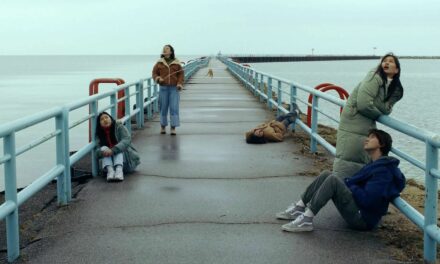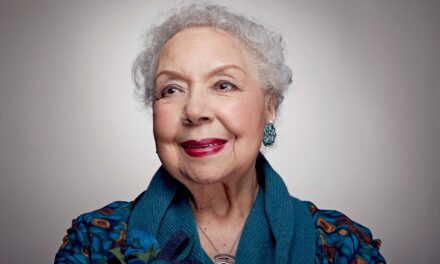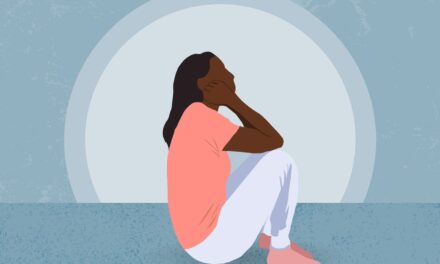Bianca Jagger is a meticulous woman. She always wants to use the correct Spanish word. Despite residing in London and New York since the early 1970s, she resists using Anglicisms. With her Nicaraguan accent and raspy voice, she steadfastly avoids the Spanglish that so many of us have succumbed to. In one of our many WhatsApp calls, she asks how to say “checkpoint” in Spanish. “Checkpoint,” I reply.
Checkpoint is a word Bianca Pérez-Mora Macías uses every day. “During my last visit to Nicaragua in 2018, I joined the largest demonstration ever held in Managua,” she said. “Snipers unexpectedly opened fire on the crowd — it was a deliberate act of violence triggered by Ortega’s shoot-to-kill order. Having experienced similar situations during the war in the former Yugoslavia and in Central America, the fear and panic among peaceful protestors was deeply disturbing. A total of 19 people were killed and 185 others injured.” These days, the situation in Nicaragua, the climate crisis and the war in the Middle East all conspire to keep her up at night. “I used to be more hopeful.” There is no peace for Jagger, who calls for Hamas to release the hostages and Israel to stop civilian deaths in Gaza. She strongly opposes U.K. Home Secretary Suella Braverman’s attempt to ban the homeless from sleeping on the streets in tents, and loudly denounces the criminal regime in Nicaragua. “If you go defy the Ortega-Murillo regime, they either kill you, put you in prison, force you to leave the country, and even take away your citizenship.”
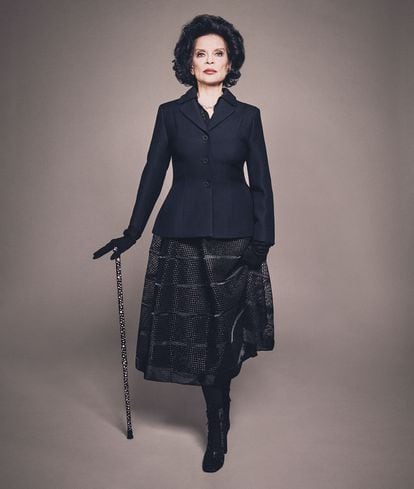
She is also clear about what she wants to talk about and what she doesn’t, like her marriage to Mick Jagger and her 1970s fame, which are now distant memories. She got involved in the controversial Contra war in Honduras and Nicaragua during the early 1980s, and the Yugoslav Wars in the 1990s. She has worked with Amnesty International, testified about climate change before the U.S. Congress, fought for the abolition of the death penalty, and demanded the closure of the U.S. detention facility at Guantánamo Bay. In 1993, she helped two children from Bosnia who needed medical care — one lived with her for a year until his parents could join him. She has received numerous awards for her humanitarian work and commitment to fighting climate change. The Bianca Jagger we met in the 1970s may be a thing of the past, but that’s where it all started for her.
She has told the story many times. Christmas Eve 1972: Bianca was having a family dinner in London when she heard about the devastating earthquake in Managua. She immediately flew home to help her parents, and was heartbroken by the devastation of her birthplace. She then persuaded the Rolling Stones and Carlos Santana to play a benefit concert in California and raised nearly $500,000 for the earthquake victims.
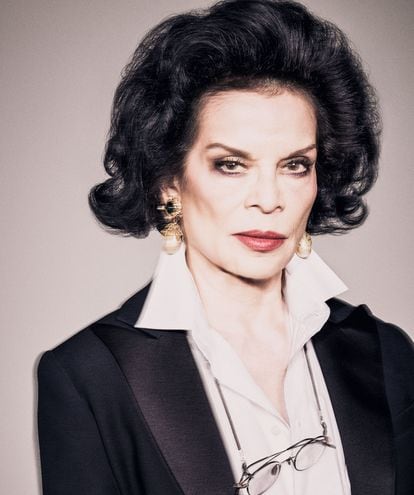
The concert marked the start of her career as a champion of humanitarian causes, but not her political awareness, which was instilled years before by her mother, Dora Macías. Dora taught her daughter about justice, human rights, freedom and democracy. Growing up under the Somoza dictatorship, Dora understood Nicaragua’s political situation well. Initially supportive of the Sandinista revolution, she later became disillusioned with its leaders’ betrayal. In 1982, she sought political asylum in the United States for herself and her family. Bianca experienced a similar awakening. As a teenager, she felt powerless witnessing Somoza’s National Guard massacring students, and desired to be an agent of change. Bianca strongly opposed U.S. support of the Contra rebels aiming to oust the Sandinistas, but also quickly became disillusioned with the Sandinista leadership.
Since then, she has waged a relentless battle against the increasingly repressive Ortega-Murillo dictatorship. Recently, Jagger loudly demanded the release of Bishop Rolando Álvarez Lagos. “He symbolizes the resistance of the people of Nicaragua. His sermons exposed the regime’s systematic human rights violations, religious persecutions, and abuses of power. In August 2022, he was kidnapped and put under house arrest in Managua. He was unjustly sentenced to 26 years in prison for treason and compromising national security in a sham trial. He has been held in deplorable conditions in the notorious La Modelo prison, where the [Nelson] Mandela Rules [about prisoner rights] are violated every day. I am deeply concerned about the bishop’s life. I urge the regime to provide proof of life and grant access to the Red Cross. I call for his immediate release,” wrote Bianca in a 19-page email that she sent me after our interview.
Bianca Jagger has a strong work ethic. “I get up between five and six, check my messages, read newspapers and listen to the BBC. I have breakfast and begin my work for the foundation. I write opinion pieces, speak to environmental and human rights organizations. After eating, I exercise and do some more office work. Later in the day, I go to exhibitions, concerts, plays or movies. Then I do some more work before going to bed.” In 2005, she created the Bianca Jagger Human Rights Foundation, which defends human rights and civil liberties, and promotes international justice and campaigns to end violence against women and girls. She talks about rape as a weapon of war, about the plight of women in Iran and Afghanistan, about the pandemic’s effects on the struggle for gender equality and the 2030 Agenda for Sustainable Development, which is still far from being fulfilled. “People say there’s media fatigue when it comes to women’s rights due to all the press coverage. Some even claim that we’ve achieved gender equality, at least in the developed world. I really wish that were true, but unfortunately, it’s not.”
Jagger is also interested in the situation of women in Spain, and was dismayed by the sexist and reactionary responses to her 2017 interview in EL PAÍS. She acknowledges that Spain, like the rest of the world, has experienced a fourth wave of feminism and has made legislative and social progress. But Jagger sees danger on the horizon. “It’s really sad to see that all our progress is being jeopardized.” When Bianca was young, she decided never to be treated like a second-class citizen. Now her job is to be an advocate, she says, quoting Audre Lorde: “I write for those women who do not speak, for those who do not have a voice because they were so terrified.” In 1969, Bianca moved to Paris with a scholarship to study at the Institute of Political Studies, which she describes as a progressive institution. She quickly embraced French culture, language and values. In Nicaragua, freedom and equality were merely dreams, but she discovered their true value in France. That’s why the recent actions of the Ortega-Murillo regime, revoking the legal status of 28 universities since 2018, with 14 confiscated, hit close to home for her.
Bianca Jagger is a decisive woman. When discussing the photographer for this interview, she had a clear choice in mind: Tom Munro. During the London photo session, she reviewed every shot on the screen. If she wasn’t satisfied, she clearly communicated the changes she wanted. She’s well-versed in the photo-shoot process and personally selected her hairstylist, makeup artist, and wardrobe (Dior, as expected). She has had a long-standing relationship with the French fashion house, and her admiration for Maria Grazia Chiuri, the current designer, has rekindled that connection. “At her first Dior show back in 2017, the models wore T-shirts saying ‘We should all be feminists,’ you know, inspired by Chimamanda Ngozi Adichie’s powerful essay. That shirt is a museum piece now! Oh, and they were even wearing sneakers and flat shoes when most designers were all about those dangerous high heels. Maria Grazia is Dior’s first female designer and has really pushed feminism to the forefront of the fashion industry.” Fashion has always been a statement, a message and a political act for Jagger. “Ever since I was a teenager in Nicaragua, I knew exactly how I wanted to dress. You see, my father was a real dandy, always fussing over his crisp white linen suits. That’s where I got my taste in men’s suits. Back then, women were treated as second-class citizens. But when I put on a man’s suit, it made me feel a little more liberated.”
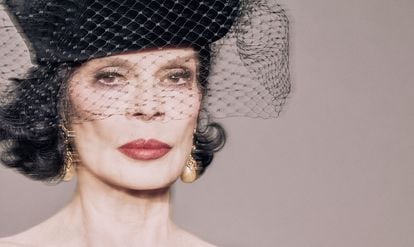
Bianca Jagger is a scrupulous woman. She doesn’t like all fables and legends that surround her. In 2015, she finally put to rest the myth that she had once entered the Studio 54 nightclub on horseback. In a letter to the editor of the Financial Times, Jagger firmly declared that she walked in like everyone else. When I inquire about an article describing an event where everyone but her was wearing Yves Saint Laurent, she laughs. “It was the wedding of Loulou de la Falaise — Yves’s muse, you know. And not everyone was wearing his clothes. I was a really good friend of Loulou — I admired her a lot. I remember wearing this stunning Dior dress by Marc Bohan that Yves himself decorated it with ferns.”
In those days, Jagger hobnobbed with some of the most fascinating creators of the 20th century. She wore designs by Yves Saint Laurent, Marc Bohan and Halston, while also immersing herself in the New York art scene. She had a special connection with Andy Warhol — Bianca’s daughter Jade posted on Instagram about Warhol coming over for tea at their home in Montauk, Long Island. In 1979, Warhol took some of his famous Polaroids of Bianca, and the two worked together on his Interview magazine. Bianca appeared on the cover three times and even conducted an interview with Maria Grazia Chiuri in 2017 for the magazine. Bianca shares that she has successfully combined her two passions — art and humanitarian work — through her foundation’s Arts for Human Rights initiative. One collaboration with Dior in 2014 showcased renowned artists like Alex Katz, Anselm Kiefer, Bill Viola, Marina Abramovic, Tracey Emin, and Yoko Ono.
Can someone with high-society connections, a famous name, and a fashion and art background engage in meaningful social work? “There’s this tendency to think that as an intellectual or a defender of human rights, you can’t possibly care about dressing well. But we don’t judge men in the same way, do we?” Jagger also decries the ageism focused on older women, and likes the magazine covers and media space dedicated to more mature women. “I think there is beauty in getting older,” she said. Getting older doesn’t bother her — she plans to work until the day she dies. Jagger struggles to find the words in Spanish to describe the multifaceted woman she aims to be. “A woman of substance,” she said in English. “How would you translate that?”
Styling: Beatriz Moreno de la Cova
Makeup: Lisa Eldridge (Streeters). Hair: Davide Barbieri (A-Frame). Local production: Thuy Tran (2b Management). Production: Cristina Serrano. Digital technician: Bruno Conrad. Photography assistants: Benedikt Frank and Kad Aliu. Styling assistant: Diego Grimaldi. Makeup assistant: Nilofar Mussa. Production assistant: Louis Guillemain (2b Management).
Sign up for our weekly newsletter to get more English-language news coverage from EL PAÍS USA Edition

